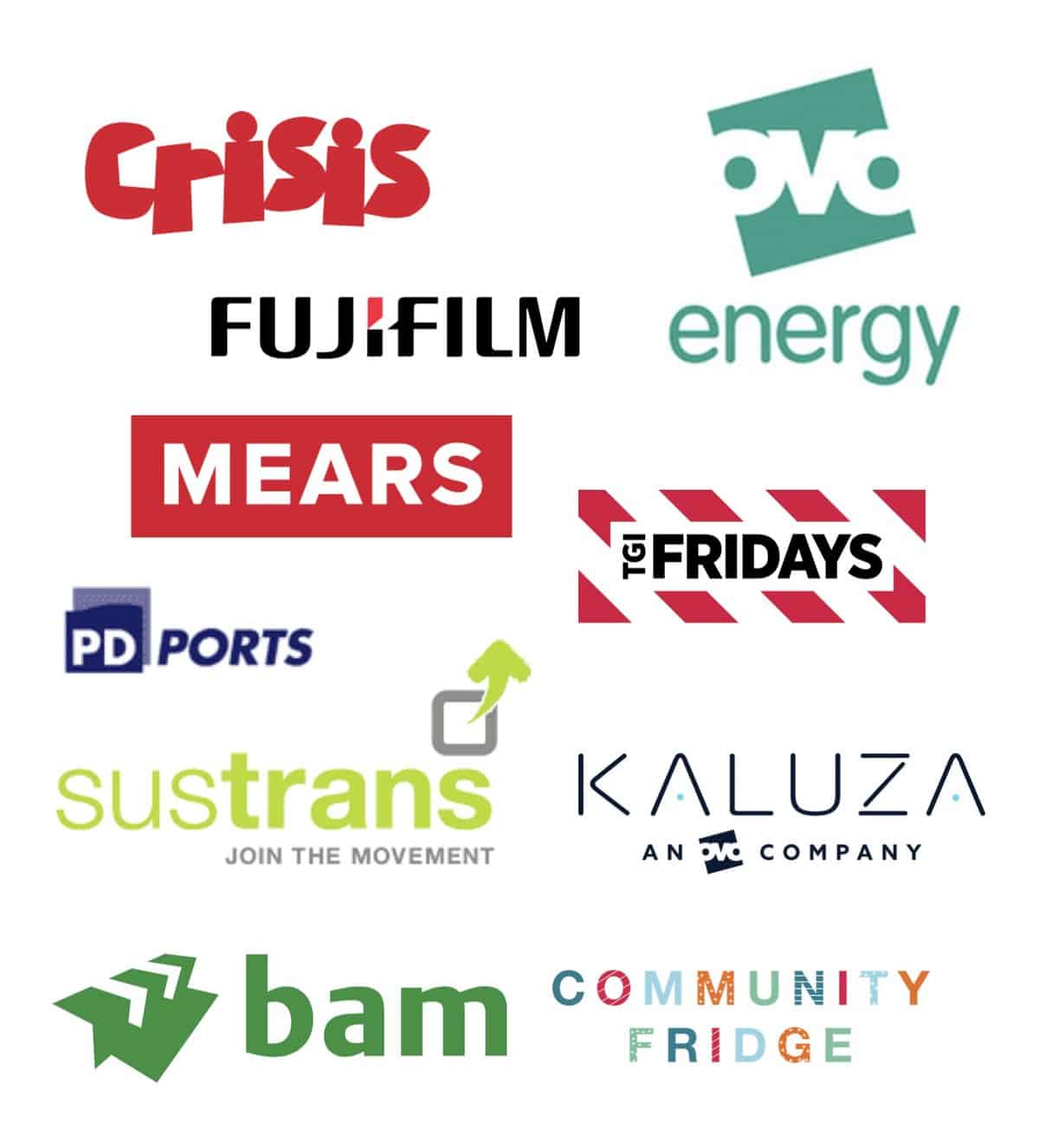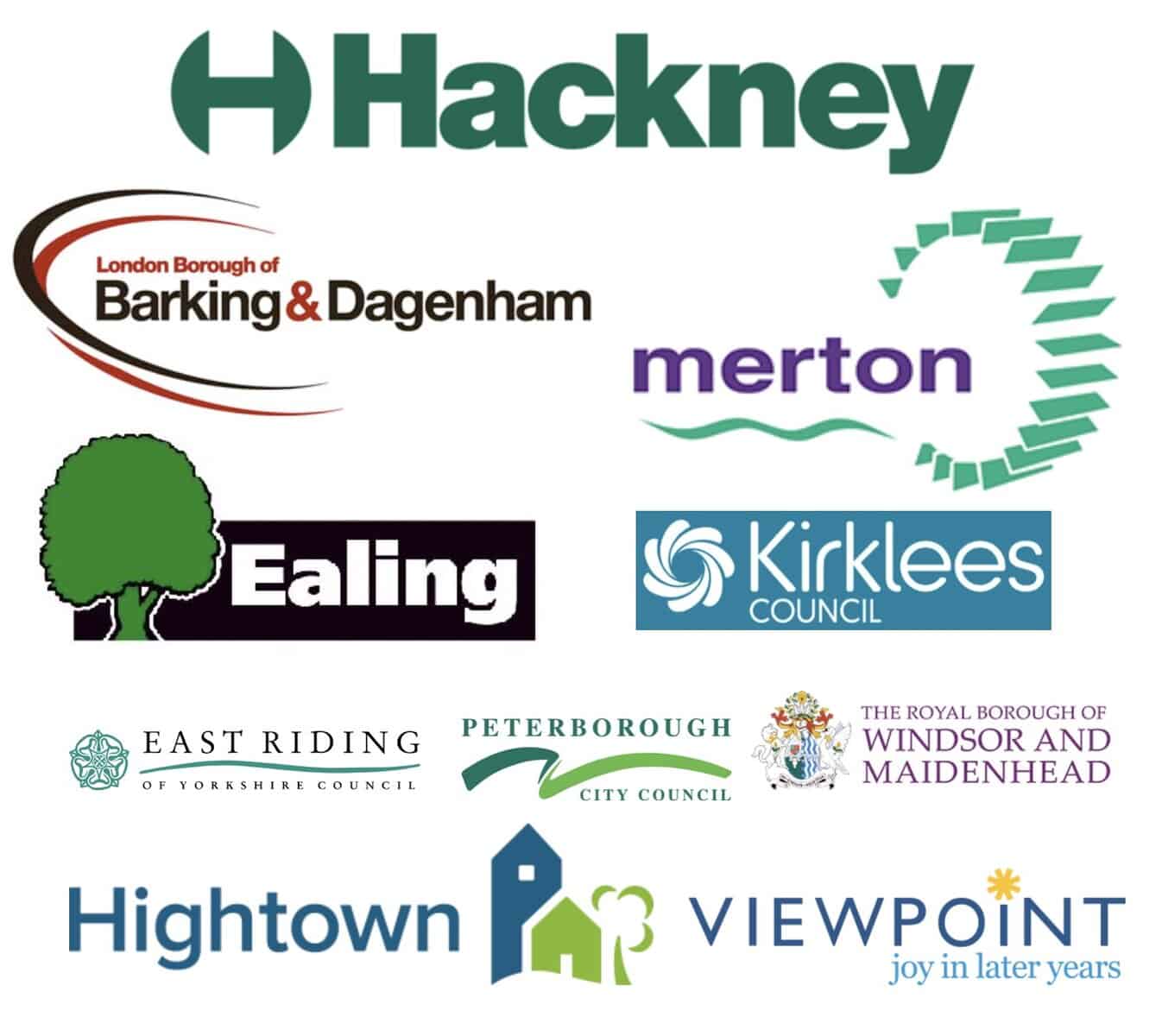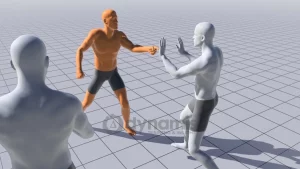
You need the confidence and peace of mind to know your team is safe as they go out into your communities. We will teach them how to assess risk, have good safety habits and de-escalate risky situations, knowing that "if in doubt, get out".
Hundreds of safer lone workers at...
Hospitals and
Healthcare

PUBLIC-FACING
ORGANISATIONS

LOCAL GOVERNMENT & CITIZEN SERVICES

Lone Worker Training for your teams
Our Lone Worker Training Course is designed to help your team to properly carry out and follow risk assessments in regard to their work. They will learn about Lone Worker Protection safe systems of work, including the best ways to use a lone worker alarm or lone worker safety device. We are specialists in personal safety skills and your team will learn systems for their own protection in the event of facing violence in public-facing roles.
Your staff will meet these Lone Worker Training Outcomes:
Book a free Training Needs call now,
to get the right lone worker
training for your team.
Lone worker Training in Personal Safety for these teams....
– need to visit people in their own homes at all times of the day or night
– sometimes visit low-income/high-crime areas where safety risk increases
– encounter customers who become angry, frustrated or distressed
– at times make a decision to leave a visit because of safety concerns
— the behaviour of non-customers at the visit cause them safety concerns
— the customer was acting strangely or gave them some anxiety
— the property itself presents with surprises after your lone worker enters
— new information comes to light once the visit is underway
Here are some teams we have helped with these issues:


Your team learn THROUGH LONE WORKING SCENARIOS
Because of our unique training methodology which progresses understanding, decision-making and skills together and in-context, your team will learn skills and understanding about working alone, assessing risks and de-escalating situations which will more-easily transfer to your workplace and make it safer for everyone.
With over 15 years of experience working with clients, we are confident that we can gain an understanding of your issues, resources, timeframes and budget quickly and soon propose a training plan which fits your needs.
Our Process for Working with You
We will teach you to deliver
evidence-based training
High Staff Engagement
Because of the immediate relevance your staff see in your course design and delivery, they are engaged, motivated and Energized during and after the training.
Better Transfer to the Workplace
Because sessions are all driven by your own scenarios, issues and challenges with the people you meet in your work, it has immediate relevance and transfers directly to your day-to-day workplace.
Time Well
Spent
Your teams get many, many opportunities to learn and practice their new skills during 'countless reps' of the target skills, actively learning in every session. There doesn't need to be endless powerpoints!
Measurable Change Happens
With highly targeted new skills, your teams can make measurable changes to their interactions and truly realise your organisation's safety ethos, focussing on dignity and respect, safety and wellbeing.
HI! I'M GERARD O'DEA
Director Of Training At Dynamis
Hi and thanks for visiting our website today.
In over 15 years of working with frontline staff who face difficult, distressed and dangerous behaviour, i have seen time and again how prepared staff can perform well and respond to challenging circumstances.
From teachers to nurses, teaching and care assistants to security officers in our hospitals and social workers in the community, if you deal with people every day, managing conflict becomes a necessity.
I became involved in this work because i saw the power of training and preparation in helping people to stay safe at work and to be more successful in working with their colleagues to create better outcomes.
I and my team of professional trainers now teach in over 500 training engagements every year around the uk and internationally for a wide variety of public-facing organizations just like yours.
We have sought out the best conflict management training content and the best learning methods in the world and bring them together for you and your team.


Join Over 3,000 Happy Customers
What our customers are saying:

A very engaging Training course
“This was a very engaging Lone Worker Training course which really helped me to understand the dynamics of difficult and potentially dangerous situations. Thank you!”
Senior Engineer // OVO ENERGY
I feel more safe in the workplace
“Very knowledgeable on subject and able to translate to practice easily, using examples to illustrate points. Practical session very beneficial. Excellent course, will be recommending it to colleagues! Feel more safe in the workplace as now have strategies to put into place to ensure safety is not compromised”
Senior Social Worker // Children's Services
enjoyable training experience
“High level of detail and enjoyable Lone Worker Training experience with personal worked experience of the content”
Customer Installation Engineer // KALUZA
Useful and Practical
“An excellent training day, useful and practical, and very well delivered by the speaker. Thanks for an enjoyable experience.”
Housing Officer // VIEWPOINT HOUSING
Lone Working - Risk Management
•Definition and Vulnerability of Lone Workers
•Importance of Person- and Visit- Risk Assessment
•Need for Seeking Information and Information Sharing
•Importance of Pre-Incident Indicators to predict issues
•Importance of availability of Violence Warning Markers
•Alternatives to Visiting
•Two-Person Visits and Gender-specific warning markers
•Reg 8 Procedures for Serious and Imminent Danger
•Need for Tracking Whereabouts and on-Schedule Accuracy
•Alerting Devices and Team Systems
Lone Working - Personal Safety
•Importance of Trusting Intuition in Lone Working context
•Pitfalls of Denial and Complacency
•Proxemics, Body Language and Positioning in a home
•Escape route selection and distance/time issues
•Wrong Place - Wrong Time - Wrong People Present?
•Victim Selection and assailant interview
•Signs of manipulation in a conversation
•Assailant Cost-Benefit analysis when selecting a victim
•Specific Conflict management advice for high-stakes confrontations
•Worst case scenarios: the Survival Anchor - how to be motivated to survive a physical assault.
Conflict Management
Core Values: Dignity and Respect
Have a Preplanned Response, Don't React
Be Alert and Decisive to Triggers and Threats
Triggers and Cues for Conflict/Distress
Showtime Mindset and Emotional Control
Proxemics
Universal Greeting the Initial Contact
Listen with Empathy to resolve Problems and Complaints
Persuade and influence to manage resistance to requests
Redirect Abuse and Negative Behaviour
Recognise Vulnerability and use Special Needs Strategies
When Words Fail Take Appropriate Action
Achieve Closure
Bystander Mobilisation for safe teamwork
Health and Safety and Risk
These elements can be covered in online pre-course training
Section 2 Duty of Employer to Staff
Section 3 Duty of Employer to Others
Section 7 Duty of Employees 'Reasonable Care'
Need for adequate staffing and availability of trained staff
Vulnerability of being alone in a violent incident
The Need for Suitable and Sufficient Risk Assessment
Planned vs Emergency interventions
Manual Handling rules and good posture to reduce injury risk
If Possible, Contain rather than Restrain
Non-police staff should not engage vs. weapons
"I recently completed the Lone Worker Personal Safety Training with Dynamis, and I am delighted to share my positive experience with everyone. The training was an eye-opener for me, and I have nothing but high regards for the trainer.
The trainer was extremely knowledgeable and engaging, making the training both informative and enjoyable. They used real-life scenarios and interactive activities that kept me engaged throughout the session. The depth of their knowledge and experience was evident in the way they delivered the training, and I was impressed by how they tailored the content to suit our different job roles.
Since completing the training, I feel much safer when working alone, and I have a better understanding of how to prevent and respond to potential safety risks. I have a renewed sense of confidence in my ability to handle any situation that might arise while working alone. The Dynamis training has equipped me with essential skills such as situational awareness, risk assessment, and de-escalation techniques, which have been invaluable in my work.
Furthermore, the training has also helped my team to be better prepared to keep each other safe. We now have a common understanding of best practices for lone worker safety, and we are better equipped to identify potential risks and respond to emergencies as a team. The training has improved our communication and collaboration, which has been crucial in ensuring our safety and well-being while working alone.
Overall, I highly recommend this training to anyone who works alone, as it is an investment in your own safety and the safety of those around you. The knowledge and skills I gained from the training have been invaluable in my work, and I feel more confident and prepared to handle any situation that might arise. I am grateful for the experience and highly commend Dynamis for their expertise and professionalism."
- Joanne Abrams, Welfare Support Team, Mears AASC
the w's
When: Lone Worker Training is normally delivered over 1 Day on a date scheduled for your convenience
Who: up to 15 Lone Worker Personal Safety attendees are led by one Dynamis trainer
What Roles: Social Worker, Community Nurse, District Nurse, Speech and Language Therapist, Domestic Violence Worker, Housing Officer, Support Worker, Outreach Worker, Criminal Justice Worker, Community Podiatrist, Customer Service Representatives, and many other community-based roles.
Where: at your venue
How: Our trainers deliver this course using a mix of lecture/presentation, Q&A, physical practice and scenario rehearsal.
Why: ✓ Matched to your Lone Worker Training needs ✓ Led by Professional Trainers ✓ Legally Audited ✓ Fully Risk-Assessed ✓ Values Dignity and Respect ✓ Safeguards Client rights ✓ Offers Staff Practical Options ✓ Compliant with Government Regulations ✓ Value for Your Lone Worker Training Investment
“Very informative and enjoyable course, especially considering I had reservations about it beforehand,Learned a lot that I will be able to use both in my daily work situations and in my personal life” – Customer Service Officer
“An excellent training day, useful and practical, and very well delivered by the speaker. Thanks for an enjoyable experience.” – Housing Project Officer
“Very good training, as it covered all angles of personal safety. Good pace and really informative” – Scheme Manager
“The course has made me look at the safety practices I use daily, lots of points picked up regarding body language and speech used to de-fuse situations – very enjoyable and informative” – Housing Project Officer
“Really interesting, helped me realise how I can sometimes give off the wrong signals and unknowingly escalate the situation. Some useful tips, raised my awareness of personal safety.” – Anti-Social Behaviour Officer
“Easily the best course I have been on since starting with the council and before – 10 years ago! I cannot remember being on a better course – and I have been on many! Interesting, balanced between discussion and lecture and FUN! Thanks!” — Adult Care Social Worker
“I feel more confident and better informed. I experience aggression from my client group regularly and now I think I can approach it differently. Excellent approach, I had fun in the afternoon session!” — Criminal Justice Social worker
“Very knowledgeable on subject and able to translate to practice easily, using examples to illustrate points. Practical session very beneficial. Excellent course, will be recommending it to colleagues! Feel more safe in the workplace as now have strategies to put into place to ensure safety is not compromised” — Occupational Therapist
“This has been a fabulous course! Would like to learn more as it would help all aspects, both inside and outside of work” — Residential Worker
Our Partners and Accreditation

MEMBER OF THE INSTITUTE OF
CONFLICT MANAGEMENT
Dynamis is a Quality Award Centre with the ICM, a recognised accrediting body in the U.K. for workplace training in the prevention and management of workplace violence.
REGIONAL REPRESENTATIVE FOR 9 ATTITUDES BEHAVIOURAL TACTICS
Dynamis represents the 9 Attitudes system, a fully behavioural approach to self-protection and physical control which is based on the observable realities of physical confrontation.
Frequently Asked Questions
Usually the training venue will be our client's responsibility and full details of this are made clear around the time of booking so that you know what we are going to need to give your people the best possible experience of training with our team.
We have often helped our clients to source appropriate training venues, where that assistance was requested!
Due to the nature of our training approach, we often require a good-sized training room which has the capacity for your team to move around in and in which we can set up scenarios which are as close as we can get them to real-world applications of the material we teach your people.
Our training costs are often calculated on a per-day basis and directly related to the Needs Analysis which we carry out with you.
We are constantly working to make sure that the investment level is reasonable and competitive.
We generally ask for an investment which takes into account the type of content we are going to work on with your staff, the numbers of staff involved, the risk level of the encounters they engage in and the number of days of training which will be required to get your people up to the proper standard.
We are VAT registered and all pricing sent to you is 'plus VAT at the prevailing rate'.
We also charge travel expenses which you should discuss with our training advisor so that these are as clear as possible as you book in your training course.
Our training advisor is waiting to have a call with you to discuss your timelines and preferred schedule. We generally book training 4-6 weeks out from today, however we always have been able to respond to clients who need training 'as soon as possible' when urgent needs pop up. The sooner we talk with you, the sooner we can get the training in place!
There are numerous formats which we use to deliver training with your team, whether it be a large group or a smaller team. We know that the best group sizes for learning depend on the complexity of the material to be covered, the amount of time we have with your people and also the constraints you may be working with in your budget and resources. Most of our clients put 12-16 people in our less-physically demanding training courses, and often fewer people than this into our more demanding courses. Let's talk about the best solution for your needs....
Dynamis has attained the respected Quality Award Centre status (QAC #2201) with the Institute for Conflict Management (ICM), demonstrating our commitment to quality assurance and strict adherence to the most recent guidance on the management and prevention of workplace conflict. All our trainers are fully qualified and attend CPD development on a regular basis in accordance with ICM requirements.
Our goal is that you see a tremendous improvement in your team's ability to prevent and manage difficult encounters with the people in your service, so we focus on making sure that each training session with your people feels directly connected to their everyday work and is compliant with the relevant guidance which governs it.
100%
You are fully protected by our 100% Satisfaction-Guarantee. If you are not fully satisfied by the training we deliver for your team, just let us know and we'll send you a prompt refund.
Gerard O'Dea